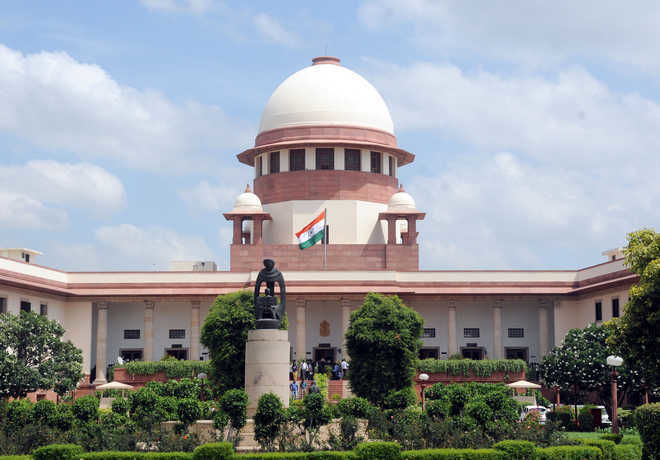Petitioners urge Supreme Court to hear review of same-sex marriage verdict in open court
Satya Prakash
New Delhi, July 9
A day before the scheduled hearing on petitions seeking review of the Supreme Court’s October 2023 verdict refusing to recognise same sex marriages in India, the petitioners on Tuesday urged Chief Justice of India DY Chandrachud to allow an open court hearing on the contentious issue.
Senior advocates Abhishek Manu Singhvi and Neeraj Kishan Kaul requested the CJI to conduct an open court hearing in view of the importance of the matter.
“We would humbly request would Your Lordships consider that in public interest these hearings could happen in open court, my lords?” senior counsel Kaul told a Bench led by CJI Chandrachud.
“This is a review petition before a Constitution Bench… You know this is in chambers…” Justice Chandrachud told the petitioners’ lawyers, pointing out that he alone can’t decide to list it for an open court hearing.
Review petitions are generally heard “in chamber” — and not in an open court — by a procedure called “hearing by circulation” where advocates representing the parties are not allowed to argue. But in exceptional cases, the top court allows open court hearing, if convinced about its need.
A five-judge Bench of CJI DY Chandrachud, Justice Sanjay Kishan Kaul, Justice S Ravindra Bhat, Justice PS Narasimha and Justice Hima Kohli had on October 17, 2023 unanimously turned down petitions seeking to allow same-sex marriages under the Special Marriage Act, saying it’s for Parliament to effect changes in the law for validating such unions.
Since two of the judges – Justice Kaul and Justice Bhat have retired, the Bench has been reconstituted with the inclusion of Justice Sanjiv Khanna and Justice BV Nagarathna.
Holding that there’s no fundamental right to marry, the Supreme Court had refused to allow same-sex marriages in India even as it directed the Centre to set up a high-powered committee headed by the Cabinet Secretary to decide the rights and entitlements of persons in queer unions.
There were four judgments – one each pronounced by CJI Chandrachud, Justice Sanjay Kaul, Justice Bhat and Justice PS Narasimha. Justice Hima Kohli had agreed with Justice Bhat. In their verdicts, the judges had agreed on certain issues and differed on others.
“The Constitution does not expressly recognize a fundamental right to marry,” wrote the CJI. Similarly, Justice Bhat ruled, “There is no unqualified right to marriage except that recognised by a statute including space left by custom.”
While CJI and Justice Kaul ruled in favour of civil union, Justice Bhat, Justice Kohli and Justice Narasimha opined against it.
The Constitution Bench had directed the Government to set up a high-powered committee headed by the Cabinet Secretary to decide the rights and entitlements of persons in queer unions.
The Centre had submitted that same sex marriage was not in conformity with societal morality and Indian ethos and would cause a “complete havoc” with the delicate balance of personal laws. However, the top court had ruled that transgender persons in heterosexual relationships have a right to marry as per the existing statutory laws or personal laws.
By a majority of 3:2, the Constitution Bench had upheld one of the adoption regulations that prohibited unmarried and queer couples from adopting children.
Contending that Articles 19 and 21 of the Constitution guaranteed all persons the right to marry a person of their choice, including LGBTQIA+ persons, the petitioners had contended that the Special Marriage Act (SMA) violated the right to dignity and decisional autonomy of LGBTQIA+ persons and therefore violated right to life and liberty guaranteed under Article 21 of the Constitution.
However, it had rejected their contention, saying, “This Court cannot either strike down the constitutional validity of SMA or read words into the SMA because of its institutional limitations.”









